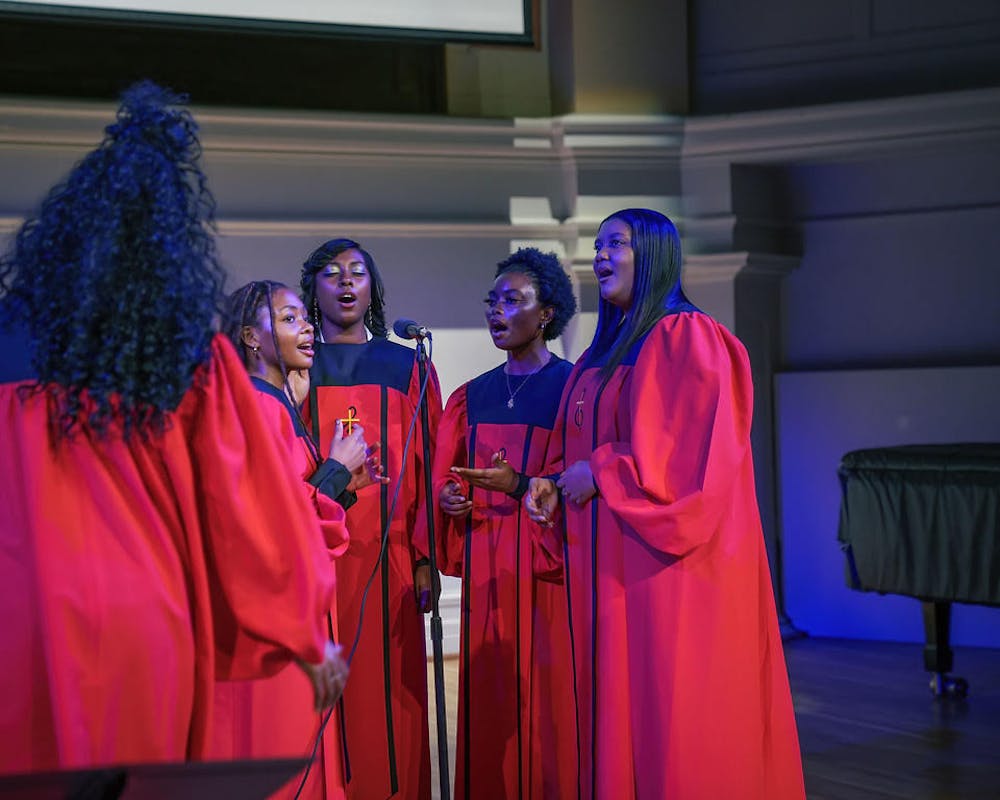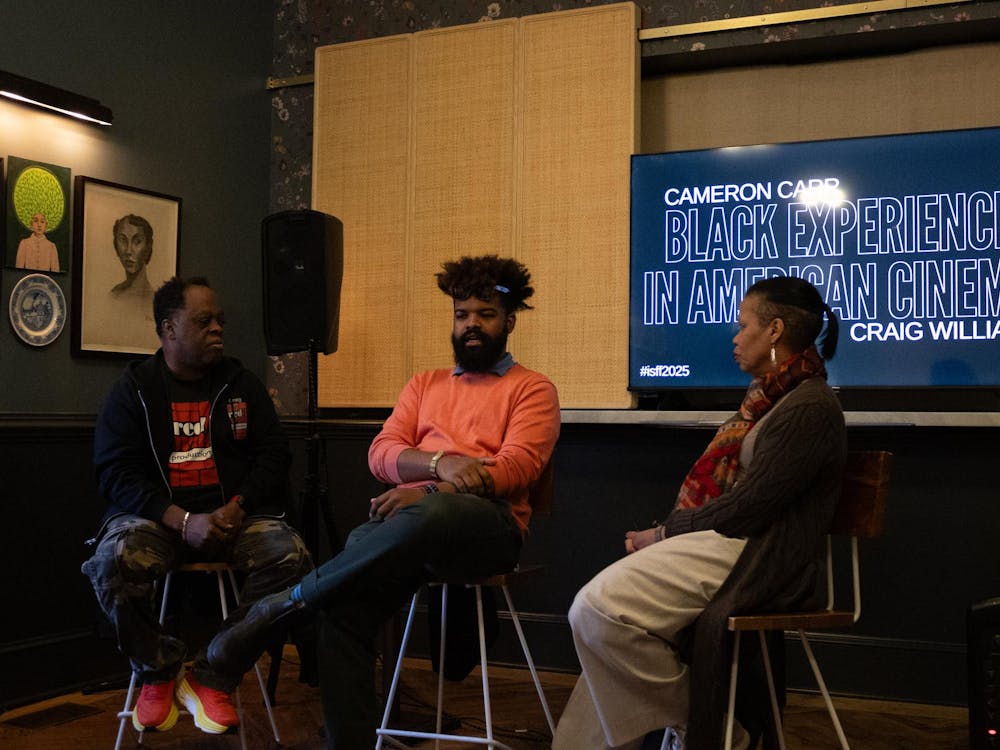“Whose side are you on?” A group of 10 University students playfully pass around this question before a buoyant piano accompaniment breaks the chatter. As a soloist leans into a microphone and sings “Who’s on The Lord’s Side” by Rev. Timothy Wright, the other vocalists encourage her with eager cheers and shouts.
This song opens the July 2023 installment of WXTJ Jamz, a Tiny Desk-style concert series hosted by the University’s student radio. Performing the song is Black Voices, the University’s only gospel choir dedicated to celebrating Christian fellowship through a rich musical tradition.
Founded in 1972, Black Voices is one of the oldest Black organizations on Grounds. Class of 1973 alumnus Nehemiah Brown created the choir to provide a space for students to share in both their Christianity and love for gospel music.
As suggested in its name, Black Voices also serves as an important hub for Black students, allowing them to recognize and celebrate their shared identity — a principle that dates back to the choir’s founding. According to Carlehr Swanson — the group’s music director, vice president and graduate College student — Black Voices was created by Brown after he was rejected from other vocal groups at the University.
“They told him his pitch was not on, and he says, in fact, his pitch was on — there just weren't any Black members in the group,” Swanson said. “So he developed Black Voices … a place where Black students can gather and share their love and this music.”
The gospel music genre is distinguished musically by clapping and stomping, as well as several key instruments like the piano, organ, tambourine and drums. Beyond the diversity of sounds and instruments within the genre, gospel music also has a rich historical background and cultural significance. Swanson said that it emerged from slavery as an oral tradition used to encourage freedom and resilience in enslaved people and these sentiments are tied into the group’s take on the genre today.
“Thinking about … freedom songs, songs of encouragement, thinking of the earlier context of spirituals — that's really where it came from,” Swanson said. “Gospel music started in slavery, and it was music really about overcoming those conditions.”
This history underscores the group’s contemporary sound in their numerous performances throughout the year, including their semesterly concerts. Each concert is programmed around a theme — for instance, the focus of last semester’s concert was “Big God” and included songs that spoke to the largeness and importance of God for the choir’s members.
This semester, the group will deliver their concert April 19 during Black Alumni Weekend, which is set to take place April 19 to April 21. With past singers in Black Voices coming back to Charlottesville for that weekend, the club will be able to engage with its own alumni through this performance. That concert — to be hosted at Mt. Zion First African Baptist Church and titled “New Season” — is nearly sold out.
According to Chandler Nandkumar, the choir’s incoming president and second-year College student, the musical selection for these performances is especially important. Nandkumar said that performing gospel music means paying attention to your crowd — that is, choosing songs that appeal to a particular audience. Their performance for Black Alumni Weekend will do just that by featuring songs primarily from the early 2000s that alumni are certain to recognize and enjoy.
The performance will also include an arrangement familiar to Black Voices singers both past and present. This event is a particularly exciting one for Swanson because of how it will unify generations of Black Voices singers.
“We have this thing called the ‘BV Medley,’ which past [executive] teams have put together. So it's something that if you've been in Black Voices, you know it,” Swanson said. “At a point in the concert, all the past members are going to get on stage and sing the song, so I’m looking forward to that.”
Outside of their larger concerts, Black Voices also aims to engage with the Charlottesville community on a smaller, more intimate scale. The religious nature of the club and the music they sing means that the choir often collaborates with local churches. Last year, for example, the group sang at Pilgrim Baptist Church to celebrate their pastor’s eighth anniversary with the church. This performance was especially significant for Nandkumar because of the opportunity to sing with and perform for those outside of the University.
“That [performance] was just so memorable, just because we were getting to sing with the Charlottesville community,” Nandkumar said. “These people live in the community, they go to this church all the time. And being able to perform for them and … just rejoice together, it was something that was really special.”
One of the distinctive qualities of Black Voices is its ability to draw from the diverse perspectives — both personal and religious — of its members. According to Nandkumar, the performance of even a single song can vary based on Christian denomination, from tempo to instrumentation. The denominationally diverse nature of Black Voices means that creating a unified sound within the club involves reconciling the members’ distinct musical instincts that arise from their religious differences. Thus, Black Voices exists as both a religious and musical blend of these identities.
“Everyone knows Amazing Grace, but different denominations will sing it a different way,” Nandkumar said. “Trying to blend that, as well, is something … that we get to bring to every song.”
Black Voices stands out on Grounds for its historical legacy, as well as its impact on the University and Charlottesville communities. But above all, Swanson says the true value of the ensemble lies in the opportunity it offers students to express themselves culturally, religiously and musically.
“It's a place where students can come on a Thursday night and draw into their spirituality and also have this outlet to … experience the healing benefits of music,” Swanson said.







